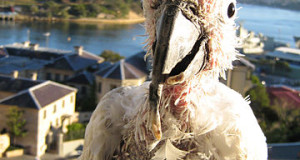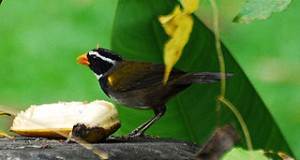The colorful little zebra finch’s popularity as a pet makes it easy to forget its long history as a valuable research animal – from genetics to pharmacology, this species’ contributions have been extraordinary. This month, studies of the zebra finch have once again yielded new insights that may have far reaching implications.
A Plastic Immune System Response
According to an article published in the September, 2008 issue of American Naturalist, immune response in these birds is not the rigid, pre-set system it was once believed to be. Rather, zebra finches somehow balance the “metabolic cost” of their response to disease against other drains on their metabolisms. Pathogens may not be met with an all-out response if other factors are draining the birds of energy or nutrition.

For example, males exhibit a lower immune response when molting into their colorful, adult plumage, a process which likely uses up a great deal of the birds’ resources. Females that are laying eggs, especially if food is not abundant, also limit the functioning of their immune systems. Interestingly, only birds that have a well functioning immune system seem able to scale back their response to disease threats; those with weaker baseline immune systems respond as strongly as possible in all situations.
Future Benefits for People
This work may help to reveal if our own immune systems function differently at various points in our lives, and may point the way to new ways of viewing human disease and infection.
On a related topic, an interesting article illustrating how some birds alter the amount of energy invested in finding a mate is posted at:
http://www.sciencedaily.com/releases/2005/02/050205075748.htm
 That Bird Blog – Bird Care and History for Pet Birds
That Bird Blog – Bird Care and History for Pet Birds


